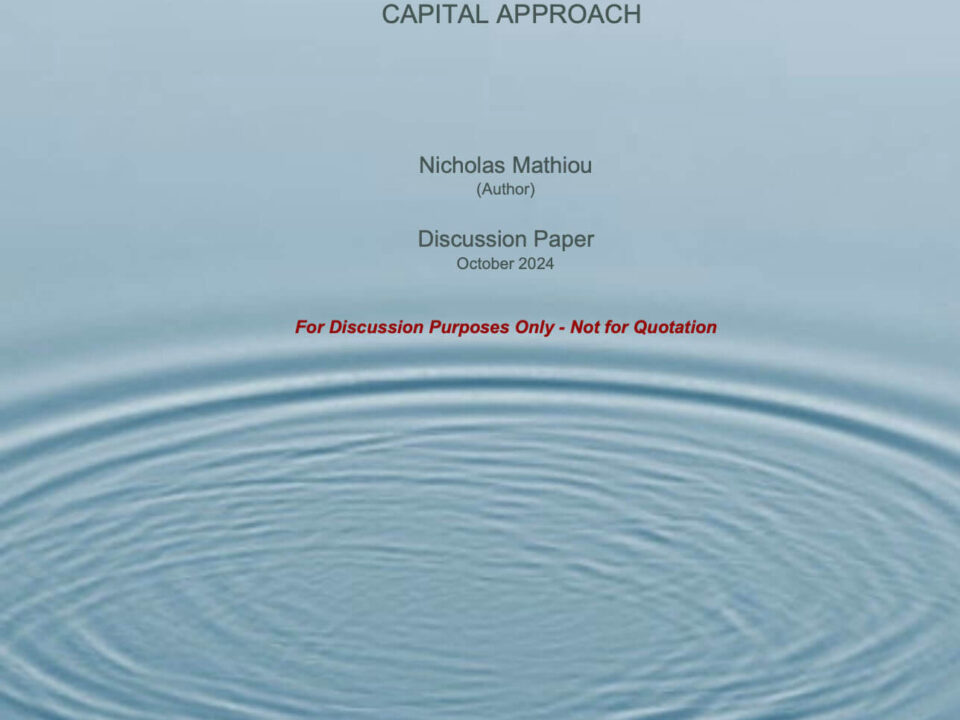The University Imperative – Opportunity Spectrum
February 11, 2022The University Imperative – Engagement Model
February 11, 2022The University Imperative – Critical Proficiencies

“Order and simplification are the first steps towards mastery of a subject.”
– Thomas Mann.
Photo: Sergey Zolkin, Unsplash
What are the specific university activities that must be carried out in-house to reach the lofty and worthy goal of delivering great socio-economic benefits?
Clearly of importance is the establishment of organisational direction. However, organisational direction whilst necessary, is of itself insufficient. Careful attention must be given to the implementation of organisational direction, and aligning various organisational activities so that great outcomes are achieved. Organisational character is required to achieve organisational direction.
How do universities get a sense of what is required? Both internal and external environments are expansive and continually changing, and impose seemingly insurmountable challenges.
The implications of a conceptual framework introduced in an earlier blog – the ‘spheres-of-impact’ – provides the key to unlocking the conundrum.
Critical Proficiencies
Designing organisational character commences with identifying those key factors that universities must master to achieve their organisational directions. These key factors can be called ‘critical proficiencies’.
To understand a university’s critical proficiencies and why and how they are relevant, it is helpful to recall the spheres-of-impact framework. Simply put, to derive impact from universities, an outward focus on major societal needs is required, along with an ability to shape education programs and research outcomes to address those needs. And, to truly ensure our communities derive the greatest socio-economic benefits from each opportunity, collaborations with partners are required.
Building on the spheres-of-impact, it can be asserted that universities must become proficient at curating opportunities, shaping successful partnerships and working together with other organisations to deliver benefits.
Because the three critical proficiencies – curate, shape, deliver – are linked to the way socio-economic benefits are derived from universities, they are interdependent. All three are required to maximise socio-economic benefits.
This link is obvious if we consider what happens in the absence of any critical proficiency.
For example, let's consider the absence of 'curate'. The inability to curate offerings that address socio-economic benefits clearly translates to an inability to enter mutually beneficial partnerships that deliver socio-economic benefit. Further, even if partnerships are entered and outcomes delivered, but they are not curated in alignment with a university’s overall best interests, non-core endeavours are being pursued and it is unlikely they will be supported in the long term.
For example, let's consider the absence of 'shape'. The curation of an offering and its successful delivery, but in the absence of a mutually beneficial partnership, is unlikely to maximise socio-economic benefits. The offering's reach and supporting funding are likely to be heavily rationed by the university or its partners. This is because one or more of the key providers are not benefiting.
For example, let's consder the absence of 'deliver'. The curation of an offering and entering into of a mutually beneficial partnership, but not delivering as required, will not maximise socio-economic benefits. Poor delivery results in sub-optimal outcomes.
Because the three critical proficiencies are linked to the way socio-economic benefits are derived from universities, they bind together organisational direction and organisational character. Organisational direction is about ‘what we will do’. Organisational character is about ‘how we will do it’. A change in organisational direction can precipitate a change in organisational character. Similarly, a change in organisational character can heavily influence the achievement of organisational direction. And, when internal and external environments shift, so too must organisational direction and organisational character.
However, regardless of these phenomena, all universities that deliver great socio-economic benefits consistently attain the three critical proficiencies. The critical proficiencies remain ‘constant’.
Therefore, regardless of turbulent environments and the complexity they bring, all universities must continually consider three simple questions:
(1) how do we source offerings to facilitate uptake ('curate')?
(2) how do we arrange mutually beneficial engagements ('shape')?
(3) how do we ensure, together with our partners, the provision of great benefits ('deliver')?
For universities to thrive, answers to these questions must be known across the breadths and depths of their organisational structures.
If you would like to know more about each of the critical proficiencies and their pivotal role in designing organisational character, please refer to my book The University Imperative – Delivering Socio-economic Benefits for our World.
There are some really insightful concepts throughout, particularly if you are driven by the desire to deliver great socio-economic benefits for us all.
For others who are starting to value the concepts the book provides, but need a little more convincing, there are more blogs to come which will touch on the three critical components of organisational character – the engagement model, the operating model and the implementation model.
The blogs are just a taste of what you’ll learn about delivering great socio-economic benefits for our world. Never has it been more important for universities (indeed all organisations), and their partners and collaborators, to do so.
I hope the book will help. A lot!
Please recommend the blogs and book to others. We need as many people as possible on board, contributing to improving the world in which we live.
I look forward to our continued journey.
Nick & The University Imperative team.

